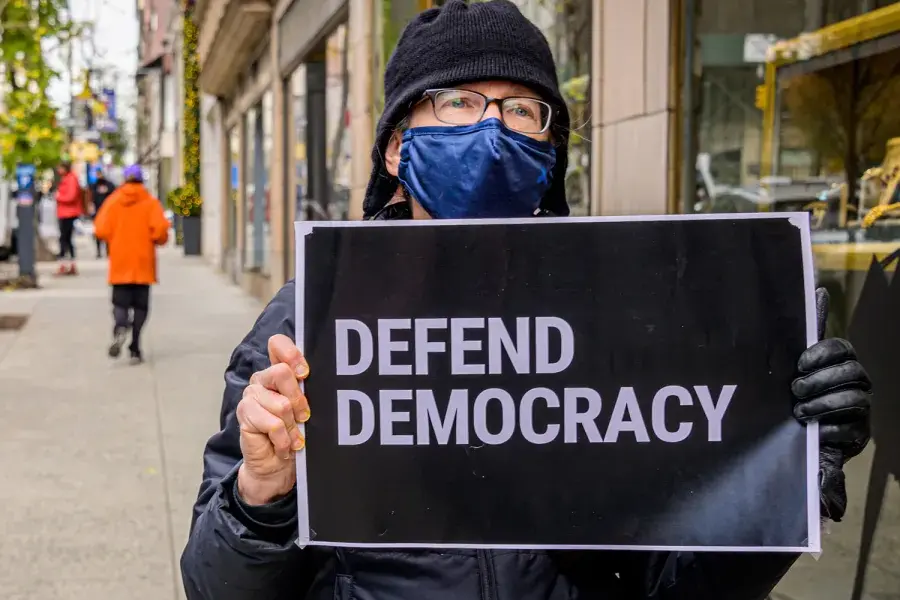Democracy at Stake: Nonprofits’ Vital Role in Countering Assaults on Reform Prosecutors

What’s Happening?
Voters elected prosecutors with a mandate to reform our criminal legal system. Community support is needed again to reject a growing assault on our democracy. We are witnessing government leaders unhappy with the policy decisions of these new prosecutors doing everything in their power to oust these prosecutors or shift their power to state officials.
The Local Solutions Support Center, in its report entitled “Preempting Progress,” reveals that 17 states (including Georgia, Texas, Florida, and Pennsylvania) have tried to overturn voters’ decisions and remove locally-elected prosecutors or transfer their power to state officials. Governor DeSantis has twice removed locally-elected prosecutors. Georgia’s governor, Brian Kemp, recently signed a bill that permits a new commission to remove prosecutors for exercising their official discretion. In Philadelphia and St. Louis, prosecutors have also faced attempts to remove them from office.
While states may remove officials guilty of crimes, or in some cases “official misconduct,” these local prosecutors are being targeted for policy disagreements. Prosecutors being targeted for removal have used their legal authority to reform cash bail, hold police officers accountable for crimes, and deprioritize prosecutions based on reactionary immigration, abortion, marijuana, or anti-gender affirming statutes. A federal judge even agreed that Governor DeSantis’ removal of a prosecutor was illegal, but as the case is stalled, DeSantis doubled down and removed a second prosecutor alleging “neglect of duty.”
Why an Attack on Prosecutors Is a Threat to Our Democracy.
Government officials’ efforts to strip away prosecutorial discretion are deliberate attempts to undermine the will of voters. A 2022 national poll showed overwhelming support for criminal legal reform. In fact, individuals across political spectrums do not believe more incarceration equates to increased public safety. Americans voted accordingly in November 2022, electing a wave of reform-minded prosecutors and rejecting the fear mongering narrative of “tough on crime” policies.
Rather than respect voters’ choices, some Republican lawmakers are going so far as to try to remove the public’s power to elect their own prosecutor. For example, in Jackson, Mississippi, the predominantly white legislature proposed a bill where the prosecutor is appointed by the attorney general, thus making Jackson – a heavily Black city – the only county in the state to not elect its own prosecutors and judges.
Even in cities and counties where recalls are being used to try to remove reform prosecutors, voters’ anxiety about crime can still be exploited.
These efforts to oust or strip prosecutors of their discretionary power prevent widely supported reforms from taking effect. It also raises an important question: why do some government officials wish to return to failed tough on crime policies despite American’s support of criminal legal reform?
The answer may lie in legislative efforts to criminalize the exercise of bodily autonomy, target marginalized communities, and silence civil-rights protests. As the “Preempting Progress” report noted, the state officials seeking to supersede prosecutorial discretion “are often the same states moving more broadly to criminalize abortion, protest, gender affirming care, and election activities-offenses that many local prosecutors have pledged not to prosecute.”
These obstacles and attacks on criminal legal reform thus hint at a broader attack on our country’s principles of democracy and freedom. Those seeking to restrict our rights benefit by having power over what activities get criminalized and who gets targeted for punishment.
What Can Nonprofits Do?
Communities and the nonprofits that serve them must combat efforts to overturn the results of valid elections. 501(c)(3) public charities are entitled to engage in the following nonpartisan activities in furtherance of the organization’s mission:
- Educate. Nonprofits can educate their communities about targeted attacks on prosecutorial power by sharing and explaining the significance of these activities. Nonprofits can debunk disinformation about public safety and “tough on crime” policies.
- Protect the outcome of elections. In addition to immediate election protection efforts to ensure a full vote count, public charities can work with incoming administrations on policies to protect their communities, mobilize the public around important issues, and engage their communities to act whenever a government official tries to remove a prosecutor or strip them of their powers. While public charities cannot support or oppose a candidate for election to public office, there are numerous ways to hold elected officials accountable if they try to remove a political opponent from office.
- Educate the public about recalls. Public charities cannot oppose or support recall efforts, but they can educate the public about when and how to vote and what recalls mean. For more information on 501(c)(3)-friendly recall activity, check out our fact sheet, “Ballot Measures and Recalls.”
- Denounce. Public charities can use their public platforms to condemn the abuses of power outlined above. This can include holding public officials accountable, publishing regular legislative records, or organizing demonstrations. Check out our factsheet on accountability advocacy.
- Lobby/challenge legislation. Public charities can monitor legislation and mobilize communities to oppose legislation that would transfer power from locally elected prosecutors to the state. Influencing legislation may need to be counted as lobbying, but public charities can lobby a generous amount so long as they remain within their lobbying limits.
Protecting the integrity of our criminal legal system from unprecedented attacks on elected prosecutors is essential for our democracy. Nonprofits must be bold advocates in this fight.